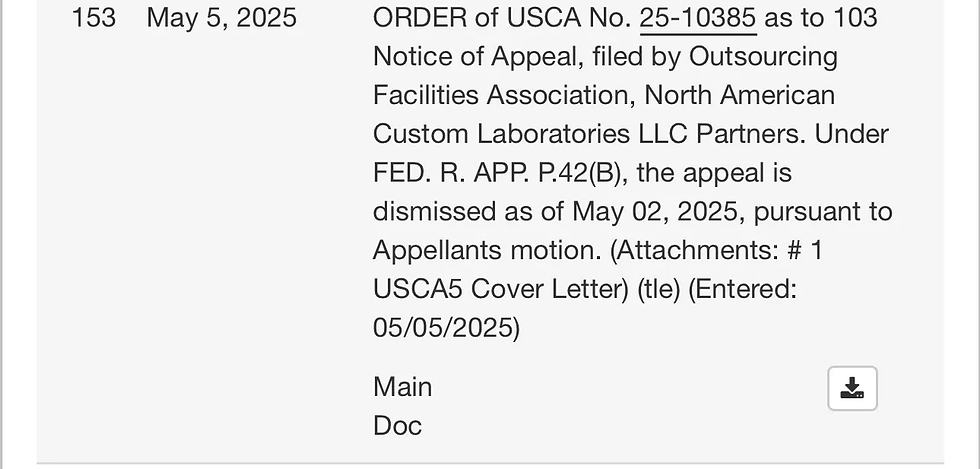Could This Force Down The Cost of Future Obesity Meds
- Dave Knapp

- Sep 9, 2025
- 3 min read
A bit of breaking news on the cost of current and future obesity medications.

FDA Commissioner Marty Makary went on Bloomberg and floated something that would have been unthinkable a year ago. He said the agency may speed up drug approvals for companies that agree to match their US drug prices to what they charge overseas.
Read that again.
If a pharmaceutical company agrees to stop overcharging Americans, if they promise to offer their drugs here at the same price they do in Canada or the UK, the FDA might move their application to the front of the line. No more ten month review timeline. We are talking one to two months. And that kind of fast tracking can be worth hundreds of millions.
Makary is framing it as part of the FDA’s new national priority voucher program. These vouchers are limited, and they are now being offered to companies that, as Makary put it, “are aligned with US national priorities.” He said pricing fairness counts. “We want to incentivize good behavior in the marketplace,” he told Bloomberg.
For context, back in May, President Trump signed an executive order reviving the most favored nation policy. That order forces drugmakers to align US prices with what they charge in other developed countries. The pharma lobby hates it. But it is happening. And now the FDA is turning that executive order into leverage.
This is new territory.
Makary also hinted this is not a one off PR stunt. He has been telling FDA staff since he got there that they need to challenge assumptions and rethink how the agency works. He even floated the idea of instant reviews in a medical journal last week, pointing to the COVID vaccine approvals as a model.
And the FDA just officially confirmed it. This new voucher program will prioritize drugs that promote the health interests of Americans. That includes cheaper drugs, especially ones that can disrupt the status quo.
And here’s where it gets real for our community. If just one company steps up and shows that the list price of something like Zepbound can actually come down, then getting insurance companies to cover it becomes a no brainer. It removes their last excuse. Once a pathway exists for fair pricing and fast approvals, the entire argument around limited access falls apart.
Even more, this could open the door for new GLP-1s like retatrutide to hit the market faster. A shorter review window paired with a patient-first pricing model? That could change everything. Not in a few years. Soon.
For anyone paying over a thousand dollars a month out of pocket for Zepbound or Ozempic, this matters. If pharma companies want faster reviews, they might finally have to stop price gouging the sickest country on Earth.
Is this going to change everything overnight? No. But it is the first meaningful sign that the FDA is willing to reward companies for treating Americans like people, not profit centers.
And if one company bites, if even one blockbuster drug launches in the US with prices aligned to Europe, the pressure will build fast.
We will be watching. And we will be pushing. Because the system does not work unless the people who need these drugs the most can actually afford them.
Stay tuned to OnThePen.com for more updates and in-depth analysis on the latest developments in weight loss and diabetes treatments. Sharing this article is a powerful form of advocacy that brings us closer to our goal of educating the masses and reducing the stigma of obesity. If you found this article insightful, please share it within your networks, especially in Facebook groups and Reddit forums dedicated to GLP-1 medications and diabetes management.
Together, we can make a difference.





Comments